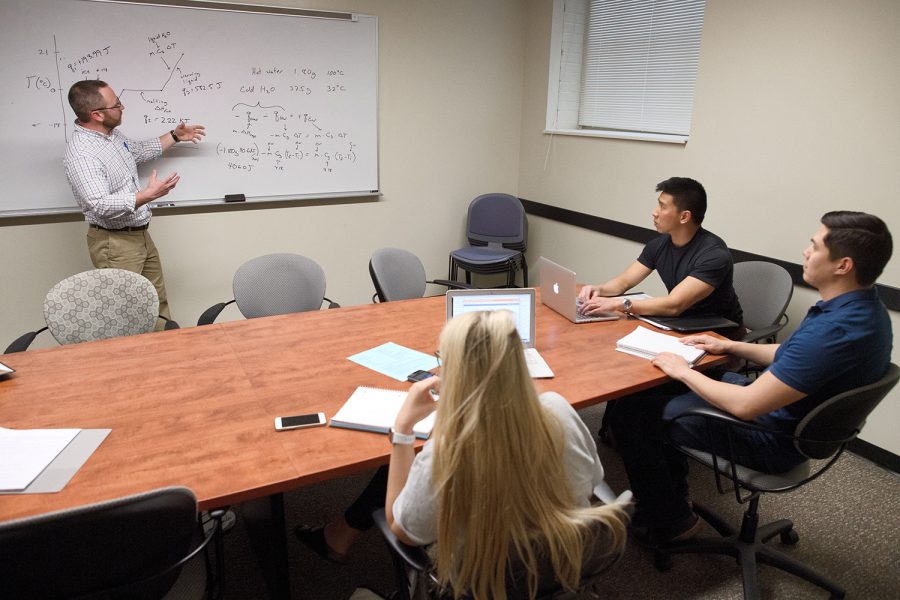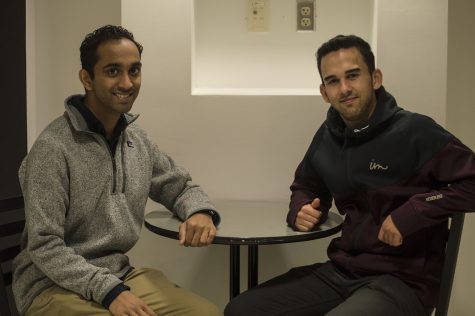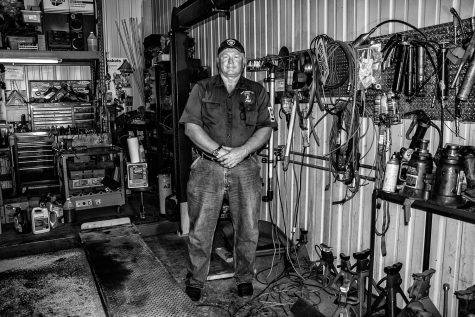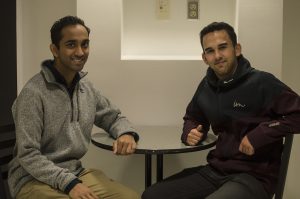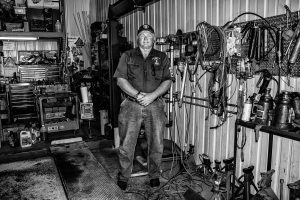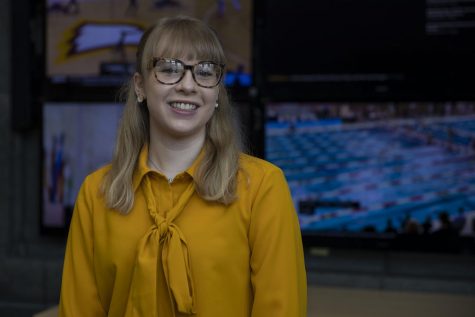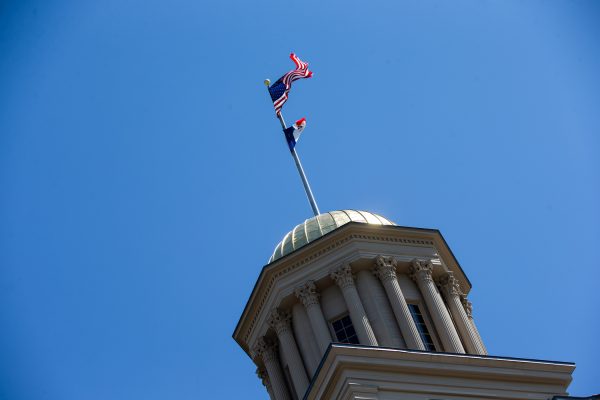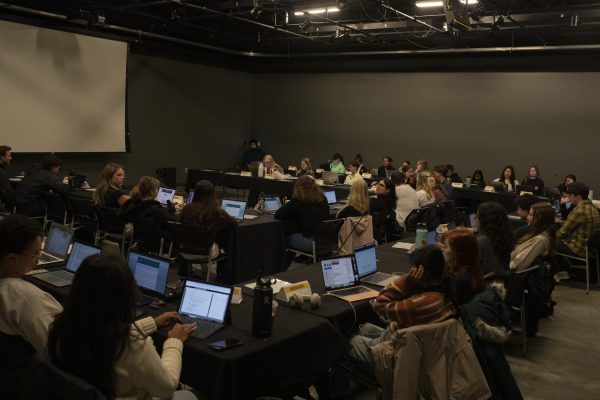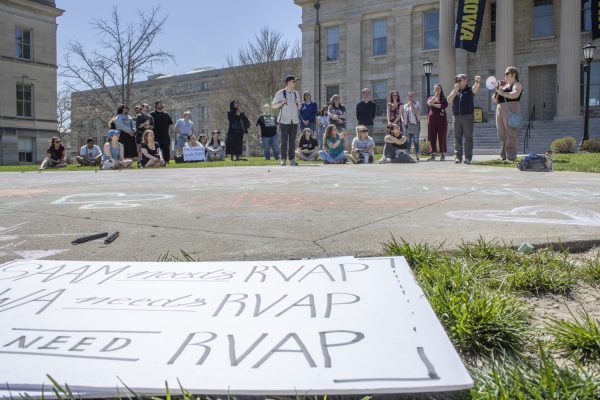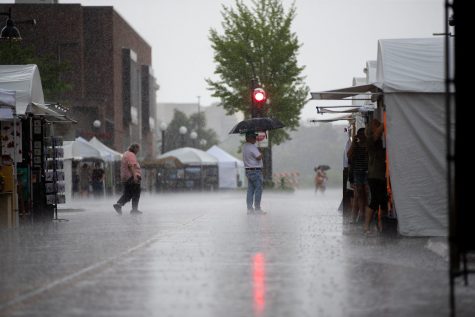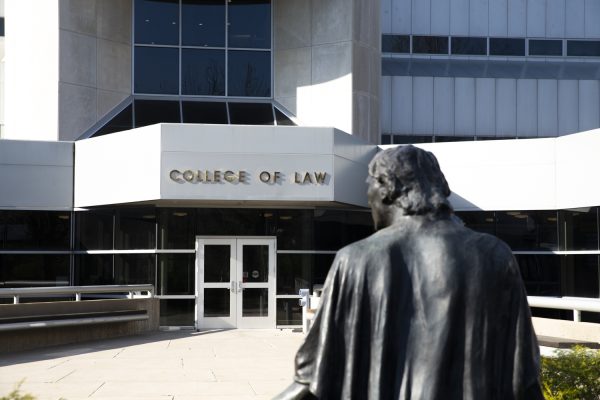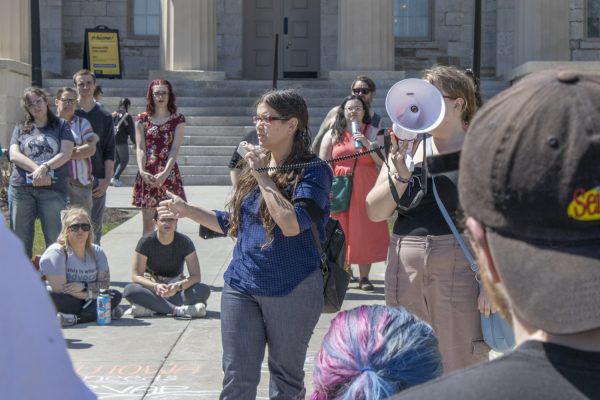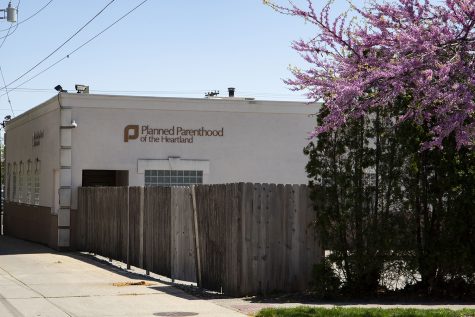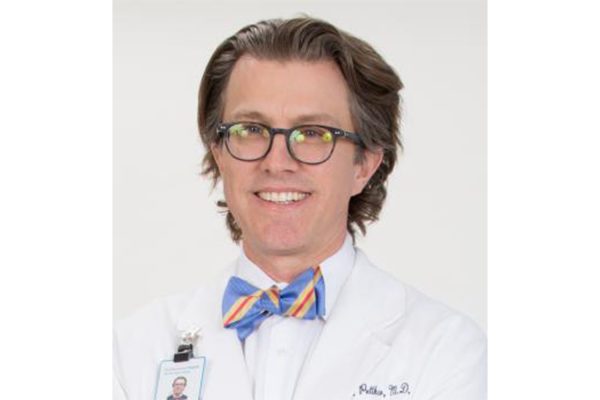Chemistry Platoon helps UI student-veterans re-adjust to classroom
The Chemistry Platoon is a program started to help student veterans succeed in their chemistry courses and create a community.
The Chemistry Platoon assists students who are taking General Chemistry or Principles of Chemistry classes. They meet twice a week where they receive tutoring and engage in discussion review.
November 12, 2018
When looking back on making his transition from being in the Army to going to college, Scott Daly, a UI chemistry assistant professor and the creator of the Chemistry Platoon, remembered how difficult it was to become a student again.
The Chemistry Platoon allows veteran-students to connect with other military-affiliated students and better understand chemistry.
Recently, the group was recognized by the National Science Foundation for its work with veterans in STEM careers.
There are a large number of veterans and military-affiliated students on campus, and he created the Chemistry Platoon to help people be good students and succeed in their classes, Daly said.
With the help of the UI Office of Assessment, he collected data to determine how student-veterans were doing in their chemistry courses compared with more traditional students and found that being a veteran was a negative predictor for grades, he said.
“It became very clear that this was a population that we should be supporting, at least in chemistry but more broadly here on campus,” Daly said.
The meetings are mainly supplemental instruction, he said. They can vary from having the opportunity to ask questions about homework assignments, having a mini-lectures, or reviewing before exams, he said.
The Chemistry Platoon meets Tuesday and Wednesday from 5 to 6:30 p.m. in the Communication Center.
The meeting topics go beyond chemistry; the members also discuss what students can do with their degrees after graduation, Daly said. The students aren’t always chemistry majors, but they may be just getting through the general-education requirements for their degree, he said.
“I have seen students come in extremely frustrated, especially early on in college, because I don’t think they had a good image as to what collegiate life is about,” Daly said. “Especially in terms of coursework demand, time management, and it’s not that people struggle with it, they just had a different vision in their mind as to what this was going to be all about.”
A small group of people generally attends the meetings, and those who do have been successful, said UI student Austin Benson, the current mentor for the program.
RELATED: PAVE gives student veterans ways to succeed
The group helps create a community of people with the same mindset of success and a unique area in which to learn, Benson said.
The meetings allow students to discuss concepts learned in class and get viewpoints from people other than their instructors, he said. The meetings don’t have a formal structure until around test week, when the students begin reviewing.
“I think we have similar concepts when it comes to college — we’re still isolated in our own way,” Benson said. “So it’s nice to be able to put your foot in the door, but quite often, it’s easier to branch out after meeting people in the group.”
After arriving at the UI, Ryan Salacinski, now a senior and current tutor for the program, joined the Chemistry Platoon after struggling with a chemistry class. He received help from Daly and the mentors of the program to succeed in his class.
He originally joined the program to pass his classes and find a community of people, Salacinski said. College can be isolating for veterans, and going to the Chemistry Platoon allows them to talk to people about not only chemistry but about their day and classes, he said.
“The Chemistry Platoon gives new veterans a lifeline for chemistry as well as a small community of other veterans to kind of give them a place to go and people who care about them,” Salacinski said.



